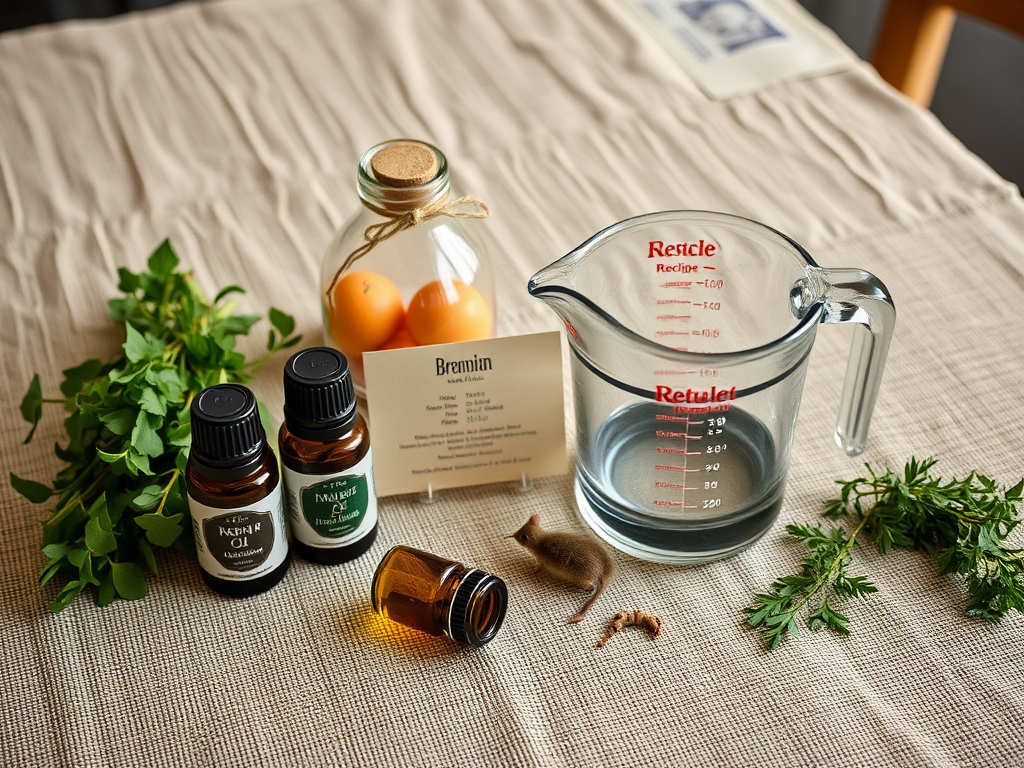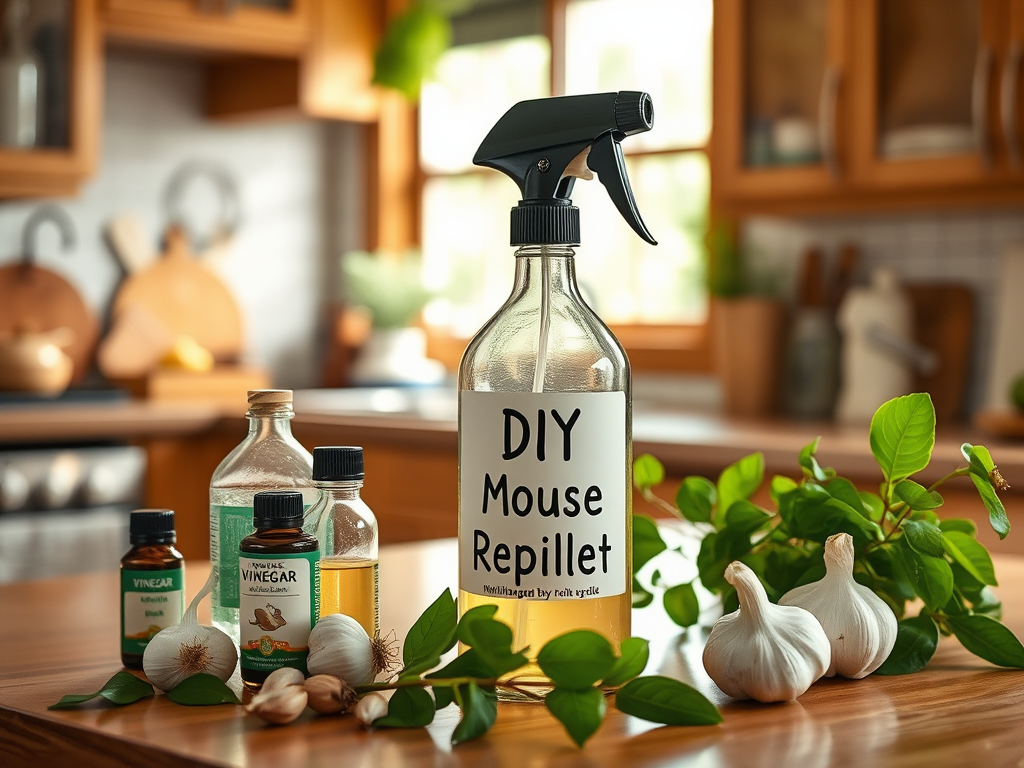When the adorable little house mouse starts to make itself at home in your cozy space, it can quickly become an unwelcome guest. Not only do these furry critters carry various diseases, but they can cause significant damage to your belongings and living environment. Thankfully, there’s no need to immediately reach for toxic chemicals or expensive traps. You’re in control with a myriad of natural solutions that are effective, safe, and often delightful in scent. Here, we explore the fascinating interaction between smell and mouse behavior. You’ll discover powerful aromas that can repel these pesky intruders, allowing you to maintain a serene, pest-free home.
Understanding the mouse’s psyche is crucial when devising a plan for prevention. Mice rely heavily on their sense of smell to navigate and assess their environment. They are creatures of habit, often returning to familiar places where they feel secure. This innate behavior can benefit us; by leveraging specific scents that mice dislike, we can alter their paths and make our homes uninviting. As we delve into the world of smells, you’ll learn how various essential oils and natural fragrances serve as potent deterrents. With a little creativity, you can create your own effective mouse repellent, empowering you to take charge of your living space.
Understanding Mouse Behavior

Mice possess a keen sense of smell that exceeds that of humans, making it their primary tool for exploration. They use scent to find food, communicate with other mice, and avoid danger. By comprehending how they respond to different smells, you can strategically design your defenses. Mice are particularly sensitive to pungent odors, which can overpower their natural instincts and disorient them. This gives us a unique advantage in our battle against these invaders. Understanding this behavior can transform your approach to pest control from reactive to proactive.
A number of factors contribute to the effectiveness of scents in repelling mice. Various odors can dissuade them from approaching certain areas. They can actively perceive these smells even at a distance, which means your home can act as a deterrent before they even step inside. As you implement your methods using pleasant yet potent aromas, remember that consistency is key. Regular application will ensure that your efforts are ongoing, keeping your environment persistently unwelcoming for mice. Now that you grasp the significance of smells in mouse behavior, let’s explore some of the most effective scents.
Essential Oils for DIY Mouse Repellent

Essential oils are concentrated plant extracts known for their powerful fragrances and various purposes. They not only provide natural pest control but can also impart pleasant smells to your home. Let’s focus on some particularly effective essential oils that serve as natural mouse repellents:
- Peppermint Oil: Known for its strong scent, peppermint oil confuses and deters mice.
- Eucalyptus Oil: A sharp, refreshing aroma that mice find overwhelming and unpleasant.
- Cinnamon Oil: Known for its warm scent, cinnamon acts as both a repellent and a delightful air freshener.
Each of these oils carries distinct properties that repel mice effectively. They work by disrupting the perceived safety that mice associate with your home, encouraging them to seek refuge elsewhere. Additionally, the pleasant scents of these oils can enhance your living space, giving you dual benefits. Why not turn pest control into a fragrant affair?
Creating an effective mouse repellent spray is easier than you think. Below is a simple recipe you can follow:
| Ingredients | Measurements |
|---|---|
| Peppermint essential oil | 10-15 drops |
| Water | 1 cup |
| White vinegar | 1 cup |
| Spray bottle | 1 (empty) |
To prepare, simply mix the ingredients in a spray bottle, shake well, and your DIY mouse repellent will be ready for application. Don’t forget to spray in key areas where you suspect mice may be entering or residing. These areas may include windowsills, around food storage, and entry points like doors and vents. Always apply this solution liberally to maximize effectiveness. It’s crucial to keep your home safe and welcoming, while also protecting it from unwelcome guests.
Other Natural Smells that Deter Mice
Besides essential oils, several common household items can be beneficial in keeping mice at bay. Here’s a quick list of additional smells that mice thoroughly detest:
- Vinegar: Strong and acidic, vinegar is a potent repellent when used in areas where mice might gather.
- Garlic: Known for its distinctive smell, garlic can discourage mice from venturing into your territory.
- Cloves: The earthy aroma of cloves is often reported as a turn off for many pests, including mice.
Incorporating these items is simple: just place them in small bowls and set them around your home. Alternatively, you can create a mixture by blending vinegar and water and spray the affected areas. Using these strong scents in tandem with essential oils can amplify the effects and provide comprehensive coverage to deter mice from your space.
Application Tips for Maximum Effectiveness
For your DIY mouse repellent to work effectively, strategic application is key. Focus on high-risk areas such as kitchens, storage spaces, and entryways where mice are likely to invade. Regularly check for new entry points and modify your application accordingly. Remember, the more consistently you apply these aromas, the more effective they will be. A well-timed reapplication following heavy cleaning or even seasonal deep cleaning can be the ticket to maintaining a pest-free home.
Combining different methods is also an excellent strategy. You may use traps alongside natural repellents. This multi-faceted approach can be particularly effective, as it creates a layered defense to combat these persistent pests. With proactive measures and natural aromas in your arsenal, you can significantly reduce the chances of an infestation.
Conclusion
Utilizing DIY mouse repellents anchored in the power of smells offers a safe and effective means of keeping your home free from unwanted rodent guests. The holistic approach of integrating essential oils with other natural scents creates an inviting atmosphere for you while simultaneously discouraging pests. Choosing natural methods over chemical solutions not only enhances your living space but also promotes better health for you and your family. By understanding mouse behavior and how they interact with scents, you are empowered to take action. Create your repellent, apply it strategically, and enjoy the peace of mind that comes with a mouse-free home.
Frequently Asked Questions
- What essential oils are best to repel mice? Effective oils include peppermint, eucalyptus, and cinnamon.
- How often should I reapply mouse repellent? Typically, you should reapply every few days or after cleaning.
- Can I use DIY repellents safely around pets? While natural, always use caution and consult a vet regarding essential oils.
- Are there any scents that attract mice? Yes, strong food scents like cheese or fruit can attract mice.
- How can I prevent mice from entering my home in the first place? Seal entry points, keep food stored properly, and maintain cleanliness in your home.
